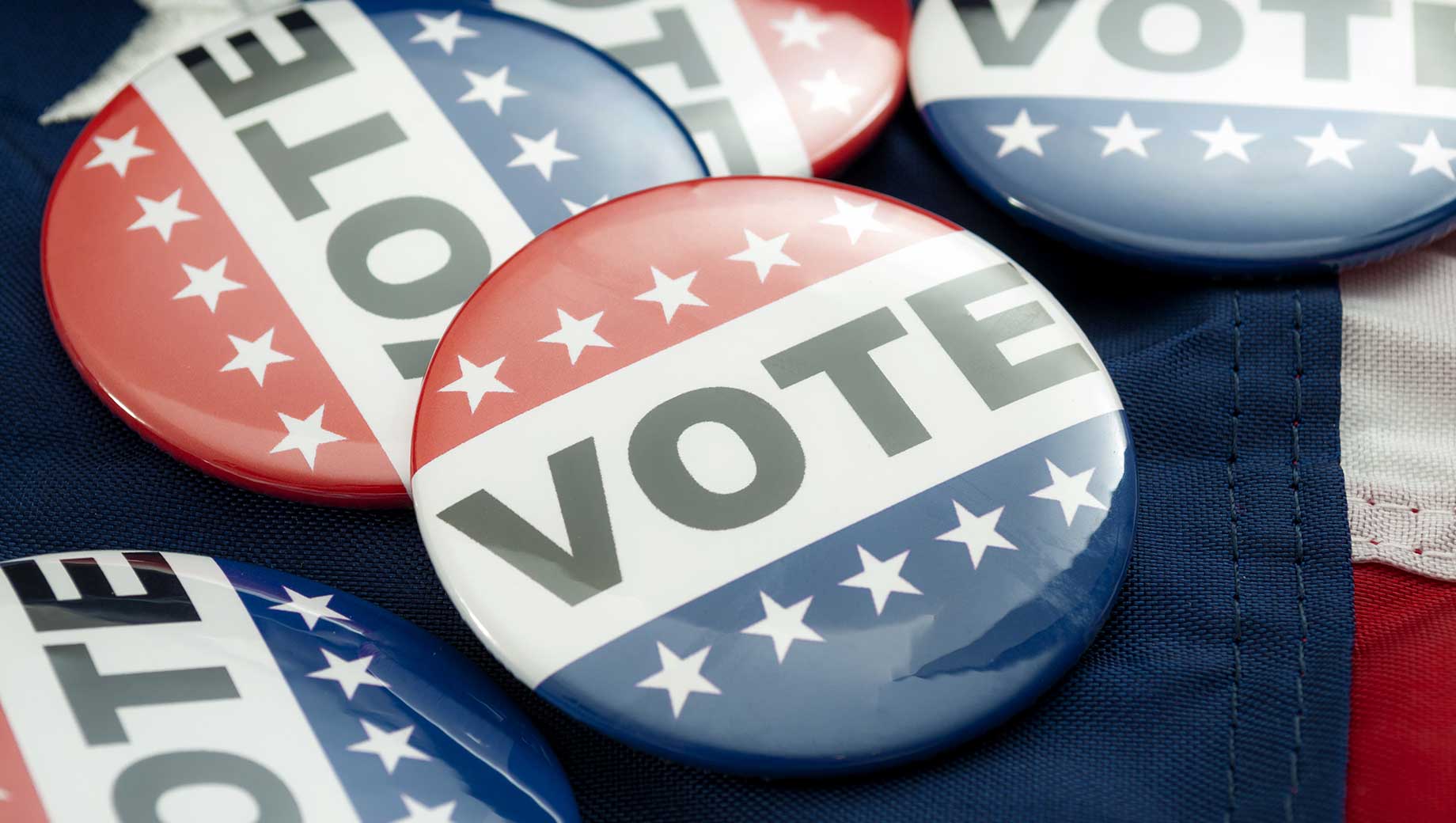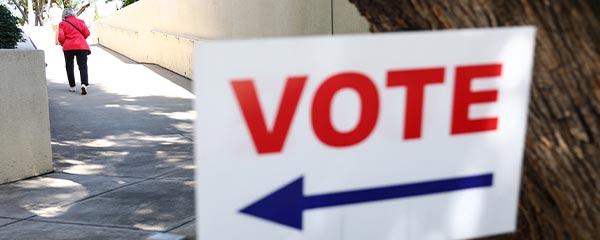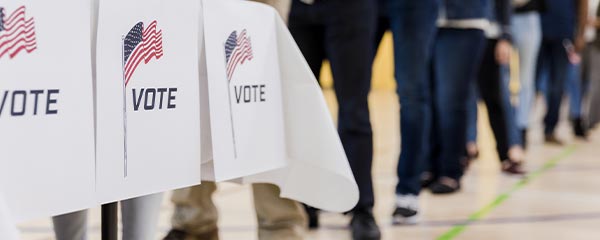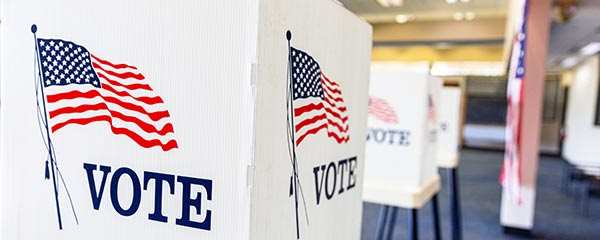Story Highlights
- 49% have given elections a lot of thought, down from 54% in 2018
- 46% more, 42% less enthusiastic about voting than in prior midterms
- Democrats have enthusiasm edge; partisans tied on thought
WASHINGTON, D.C. -- The 49% of Americans who say they have given "quite a lot" of thought to this year's congressional elections is essentially unchanged from the previous reading in June. In addition, 2% volunteer that they have given the midterms "some" thought, while 44% of U.S. adults say they have given them "only a little."
While the June figure was unusually high for that point in the midterm election cycle, this lack of change is a departure from previous elections. Typically, as Election Day draws closer, the amount of thought given to an election increases.
Although the current percentage of Americans who say they are thinking a lot about the elections is five percentage points lower than the final preelection reading in 2018 -- a year when turnout was the highest in a midterm election in over 100 years -- it is on par with the 48% average for this measure since 1994.
The latest findings are from an Oct. 3-20 Gallup poll, conducted as early voting began in some states.
Gallup research has shown that the amount of thought given to an election is a key predictor of voter turnout -- that is, when people indicate they are thinking more about an upcoming election, turnout is higher.
Since 1994, on average, Republicans have slightly outpaced Democrats in giving thought to elections. In the final preelection poll in 2018, however, Democrats were more likely than Republicans to have given the election a lot of thought. They went on to win back control of the U.S. House of Representatives, while the Republicans gained two seats in the Senate.
This year, neither party has an edge on this measure, as 57% of Democrats and Republicans alike report they have thought a lot about the elections. As is typical, far fewer independents (37%) say the same. The readings for Republicans and independents are close to the averages for those groups since 1994, at 55% and 39%, respectively. The current Democratic reading, however, is seven points higher than the average since 1994.
Enthusiasm About Voting Down From 2018, but About Average for Midterms
Americans are also markedly less enthusiastic about voting in this year's elections than they were in 2018. The 46% of U.S. adults who now say they are "more enthusiastic" to vote compared with previous elections marks an 18-point decline from the last midterms. Currently, 42% say they are "less enthusiastic." However, today's enthusiasm is in line with the average since 1994.
Gallup has not found a direct relationship, historically, between Republicans' and Democrats' enthusiasm for each election and their turnout rate. Rather, the metric seems to capture how Republicans and Democrats feel about their party's chances in the upcoming election, evidenced by the fact that the party with greater enthusiasm tends to prevail in the midterms.
In early to mid-October, when the latest poll was conducted, Democrats held a minor advantage in enthusiasm over Republicans, with eight points separating the party groups. In all, 57% of Democrats and 49% of Republicans say they are more enthusiastic about voting this year. This is a significant reversal from June, when Republicans (58%) were more enthusiastic than Democrats (48%).
While both readings are lower than those in the final preelection poll in 2018, Republicans' enthusiasm is down more than Democrats' is, by 23 points vs. 12 points.
For their part, 35% of independents report more enthusiasm this year -- which, though down 16 points since 2018, is essentially on par with the 1994-2014 readings for the group.
Bottom Line
Gallup's final preelection poll suggests that neither party has a definitive edge when it comes to voter engagement. While Republicans may not enjoy the midterm turnout edge they have had in previous years, they are not at the same disadvantage as in 2018. With both parties giving the election the same amount of thought, the outcome may hinge on which party's candidates independents ultimately support.
While Democrats have a slight edge in enthusiasm, their party is vulnerable given President Joe Biden's low approval rating, high inflation, economic woes, and broad dissatisfaction with the direction of the country. However, Democrats' prioritization of the abortion issue could lead to higher Democratic turnout.
To stay up to date with the latest Gallup News insights and updates, follow us on Twitter.
Learn more about how the Gallup Poll Social Series works.




